Technology, science, finance and law have transformed Cambridge’s economy and its legal community. But in a rapidly polarising city, can they also help those left behind? Joanna Goodman reports
At the table
(Left to right) Drew Winlaw Simmons & Simmons; Peter Lee Simmons Wavelength; Sophia Adams Bhatti Simmons & Simmons; Lucy Shurwood Simmons Wavelength; Dia Thanki Alchemy Machines; Geoff Dragon Mishcon de Reya; Jaeger Glucina Luminance; Eduardo Reyes Law Society Gazette; Michael Frape Cambridgeshire Law Society, Ashtons Legal; Scott Parmenter Mishcon de Reya; Joanna Goodman Law Society Gazette; Alicia Virtue Anglia Ruskin University
Alongside academic prowess, Cambridge is known for developing and attracting world-class technology businesses and talent. In 2023 it retained its Global Innovation Index ranking as the world’s most intensive science and technology cluster, and, according to startupblink.com, it is the UK’s second start-up ecosystem after London. Its legal community has expanded and evolved in line with the expansion of the Cambridge tech cluster. Its lawyers guide and support start-ups, help businesses scale up to IPOs and beyond, and advise international tech businesses on establishing and expanding UK presences.
Cambridge’s reputation for growing successful businesses attracts expert advisers and investors, and brings career opportunities for graduates and locals alike. But there are issues around social mobility; local legal services are playing catch-up, and there are gaps in provision. The Gazette roundtable brought together representatives from Cambridge law firms, legal tech start-ups and academia to discuss the opportunities and challenges.
World-class
Peter Lee, founder of Wavelength, the legal engineering company that was acquired by Simmons & Simmons in 2019, refers to Cambridge as ‘a confluence of world-class education – and a really good talent pool – an ideal geographic location within easy reach of London, and a virtuous circle of investment’. He explains that while people talk about the Cambridge phenomenon, the entrepreneurs whose successful businesses were Cambridge University spin-offs in the 1970s and 1980s are today’s angel investors.
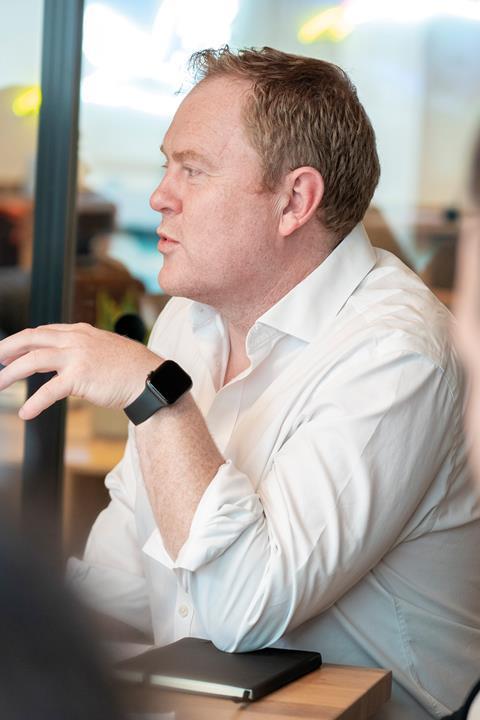
Mishcon de Reya partner Geoff Dragon, who advises start-ups and scale-ups on early-stage and venture capital fundraising, says the university continues to buy into the start-up ecosystem. ‘None of the tech transfer systems around the country are as sophisticated or as relaxed as what we have here because they know the benefits in terms of both commercialisation and future research,’ he explains. ‘On the venture capital [VC] side, there are local VC companies – Cambridge Innovation Capital, Amadeus Capital Partners, Martlet Capital – and it’s easy to get to London. So there is diversity of funding, research and starting points. It’s not just Cambridge University: there are many touchpoints and, notwithstanding all of that, it’s a small community, so it’s easy to meet people.’
Alicia Virtue, head of law at Anglia Ruskin University, recalls that before technology’s dominance grew, Cambridge had separate industries and universities. ‘We had the polytechnic and the university, the Science Park and Addenbrooke’s Hospital, which has expanded massively. As technology emerged, Cambridge became more interdisciplinary, and as the companies are coming in they’re starting to connect up with the tech. We’ve got AstraZeneca and Pfizer based in Cambridge now, so it’s now a hub for [science] businesses while the universities grow the talent.’
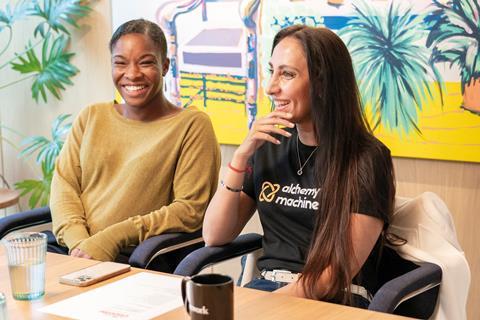
Perhaps surprisingly, place and concentration still matter in the digital age. ‘Place is everything,’ says Sophia Adams Bhatti, head of purpose and impact at Simmons & Simmons. ‘Technology becomes secondary if you have no one to play with it.’
The local legal sector has changed exponentially, following in the wake of Cambridge’s boom town growth, says Michael Frape, president of Cambridgeshire Law Society and partner at Ashtons Legal. When he started practising in Cambridge in 2002, the regionally significant legal centres were Norwich and Cambridge, but now Cambridge is far ahead and the change in the quality and number of firms is sensational, he notes.
Frape observes that the success of Cambridge companies like chip designer Arm continue to attract major investors and advisers to Cambridge. In September, Arm completed the biggest-ever Nasdaq listing for a UK company, which valued it at $54.5bn (£43.9bn).
Lee suggests that because Cambridge is an attractive place to live, when people finish university they want to stay in Cambridge, adding to the talent pool.
However, this is only partially true for legal AI company Luminance, which was founded in 2015 by Cambridge academics and maintains a Cambridge tech hub. Chief of staff Jaeger Glucina says that while the company encourages its people to stay in Cambridge, its young talent is attracted by London. The high price of accommodation in the centre of Cambridge is a factor, with graduates choosing London over the alternative – moving to outlying areas of Cambridge.
Furthermore, Cambridge’s high property prices and independent schools are attracting an elitist demographic at the expense of social and economic diversity.
Adams Bhatti sees this as a side effect of the city’s expansion. However, she believes that tech companies have the opportunity to reach out to local communities and form partnerships with schools and colleges to provide career opportunities, so that local populations can benefit from the city’s growth and prosperity.
‘Cambridge is the most unequal city in England,’ says Frape. ‘And that is certainly a challenge because there’s so much wealth next to quite a lot of deprivation.’
Future proof? AI and training
Will generative AI force a complete rethink of the legal training model? ‘Legal education is the point where it starts,’ says Mishcon de Reya’s Scott Parmenter (pictured). ‘I studied at Kent, which branded itself as a critical law school – it taught critical thinking. I also studied for a year in France, where the approach is very “black letter”. Those critical skills and the ability to challenge authority are what I think will bring a younger generation of change.’
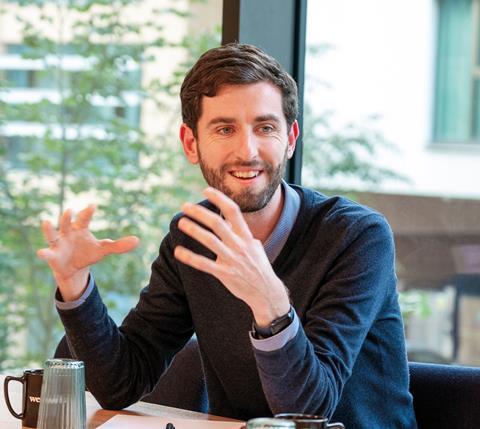
‘What will firms want from graduates – and universities? How do you want us to teach our students?’ asks Anglia Ruskin University’s Alicia Virtue. Academic assessments have also changed. ‘We haven’t gone back to exams since the pandemic,’ she adds. ‘When I was a lawyer no-one expected me to remember references – so open-book exams are fine. We are now setting up for the SQE, and we’re using Barbri. Classroom teaching is different too. We are more like coaches than teachers. Allowing students to use ChatGPT for assessments means they need to do more proofreading and apply critical analysis, attention to detail, and data management skills.’
The role of junior lawyers will also change as generative AI is increasingly used for routine work. ‘In an ideal world, junior lawyers will be involved in client relationships and negotiations,’ says Mishcon de Reya’s Geoff Dragon.
Simmons Wavelength’s Peter Lee highlights new services and skills related to using generative AI. ‘What I want from graduates are things like prompt engineering skills, the ability to ask the right questions, and the right follow-on questions to mitigate the risk – a bit like legal research skills. And I value a critical intelligent challenge. A lot of this stuff is new, and it’s really valuable to have somebody in the room who feels empowered enough, in the right culture, to apply their intelligence and challenge something. The best trainees I have supervised recently have done that really well.’
Justice gap
The influx of investment and the incomes attached to it has only exacerbated the justice gap. Frape says his Law Society is working with firms to try to get more pro bono representation.
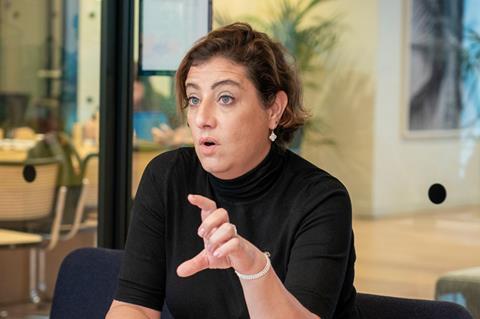
Virtue, who heads up the Anglia Ruskin University law clinic, has seen gentrification change the profile of the city’s law firms. ‘When I was an employment lawyer, I wanted to represent employees, but it was hard to find a firm that supported the person rather than the employer. Consequently, the Law Clinic, which provides free legal advice, is massively overextended. The Law Clinic is meant to be an educational tool, but at Anglia Ruskin we’re plugging a gap in the access to justice market.’
The gap in provision is growing, thanks to the lack of adequately funded legal advice, and the predictable loss of the smaller high street law firms. ‘Nothing is there to step into the breach,’ says Adams Bhatti. ‘We are in the tech heartland of Cambridge, yet there are hardly any game-changing access to justice applications. All the start-up funding and investment is focused on B2B problems, rather than Cambridge’s huge social needs, which include the lack of housing and family advice.’
Based on her experience working with Pritzker Law School in Chicago, which has 27 full-time faculty members running its law clinic, Adams Bhatti believes there are opportunities for the universities to help.
'While tech can assist with the advisory piece, anything that involves the courts is hopeless'
Lucy Shurwood, Simmons Wavelength
While Frape wonders whether it is now up to universities and large firms to address unmet legal need in society by providing free advice, there is general agreement that this is not a sustainable solution: partly because providing access to justice often requires specific legal expertise.
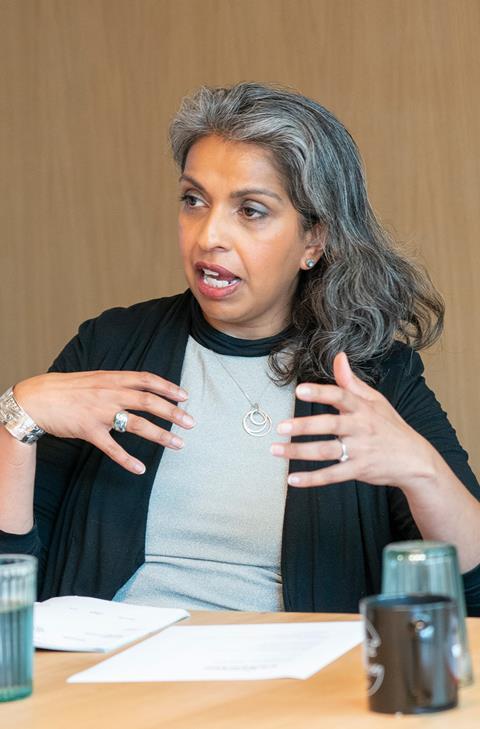
There could well be a role for technology. Lee recalls visiting Uganda Law Society in Kampala, where legal technology focused on access to justice. ‘Until that point, everything I’d done in legal tech and legal engineering had been corporate and B2B. There just wasn’t an access to justice scene in legal technology in the UK.’
Funding is a key challenge, and so is the court system. Lucy Shurwood, who recently joined Simmons Wavelength as a partner, explains. ‘While tech can assist with the advisory piece, anything that involves the courts is hopeless. … [As] soon as someone needs family court or litigation, they will still get stuck in courts system.’
Adams Bhatti counters that most legal issues defined as access to justice are about knowing your rights and tech can potentially help with this. ‘There are so many problems that clinics, and legal education projects hear [but they] don’t have the ability to tap into databases and quickly find relevant information. Surely with large language models, we could solve some of the most basic questions that people ask by working collaboration with our great universities and perhaps the five companies on this street?’
'We are in the tech heartland of Cambridge, yet there are hardly any game-changing access to justice applications. All the start-up funding and investment is focused on B2B problems'
Sophia Adams Bhatti, Simmons & Simmons
Dia Thanki is founder and chief executive of Alchemy Machines, which is developing exactly this type of solution. ‘Our second product will solve a lot of these access to justice problems using large language models,’ she says. ‘Specifically, retrieval augmented generation, which has been talked about quite widely in relation to domain-specific data sets.’ Although Alchemy Machines is based in London, its technical lead has a doctorate from Cambridge, as does one of its investors. ‘Having access to skill as well as the funding can help open up access to justice.’
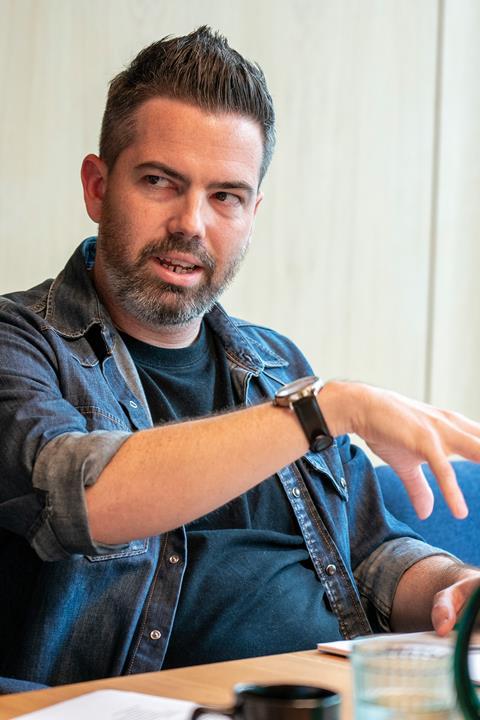
At Anglia Ruskin University, ‘tech and access to justice is a major focus of the Centre for Access to Justice and Inclusion,’ Virtue explains. ‘People need to be educated to know they have issues and access what they need. We can have all the apps in the world, but if people don’t know how to find the information they need, we are still missing a trick.’
‘Cambridge is an island of success, wealth and achievement, and special people in quite a rural community,’ Frape says. ‘And it will get even more polarised unless we have societal solutions. The reality is, even with apps, there will still be significant unmet legal need unless there are people helping those who can’t afford legal advice navigate the legal system.’
While law firms and tech businesses have a social responsibility to the communities they operate in, and recruit from, making a real difference means working together.
In this region there is a vibrant legal community. Cambridgeshire Law Society includes law firms, patent attorneys and in-house lawyers, including from AstraZeneca. ‘The general idea is to get colleagues from different firms together to improve their professional network for the greater good of themselves and their firms and to cross-fertilise ideas,’ explains Frape. ‘Part of our mission is to celebrate success so we have an annual dinner with legal excellence awards, which are judged by an independent panel.’
Redefining lawyers
'There’s so much of my day-to-day job that I would rather not do if technology could do it for me'
Geoff Dragon, Mishcon de Reya
With the influx of science and tech businesses, advances in legal tech, and a strong start-up dynamic, Cambridge is on the frontline when it comes to technology changing what it means to be a lawyer.
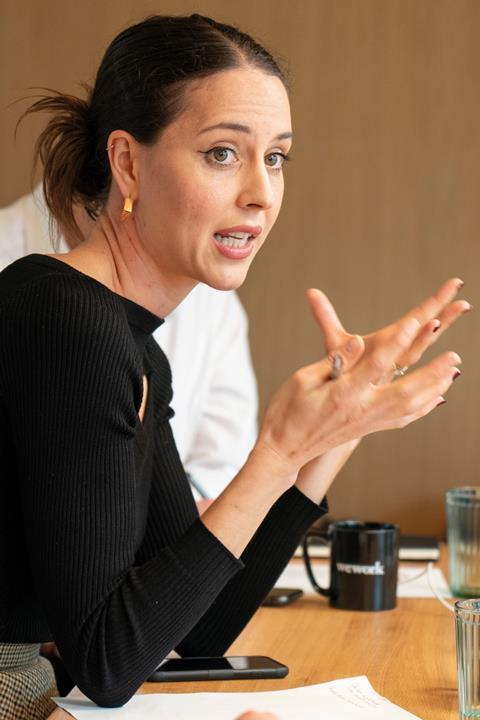
Scott Parmenter, managing associate at Mishcon de Reya, who advises tech companies, immediately focuses on generative AI, which is frequently seen as a game changer for law. ‘One issue is how ChatGPT is shaping legal advice,’ he says. ‘It’s an evolving model, and [the challenge] is now about creating platforms that can provide information in a secure, factually accurate way – and it isn’t there yet. The other big area of growth and development is quantum computing, so the two probably need to coalesce to create what’s needed in the longer term.’
Shurwood presents a different perspective: ‘I don’t think technology has had the impact that many of us anticipated, and that has made lawyers and law firms complacent because they were expecting something revolutionary to happen.’ However, she adds: ‘Large language models will be transformational, and AI has the potential to be the revolution that we’ve all been expecting.’ She identifies three challenges: ‘First, the market is becoming more commoditised and lawyers are not getting paid in the same way. Second, new technology will have the capability to replace a lot of bread and butter work. And third, what does this mean for our people? How do we ensure our people are engaged, knowledgeable, and can use technology well?’
'We were working with law firms who hesitated to use AI products for due diligence and ediscovery. Now it’s gone in the opposite direction with the introduction of ChatGPT and we’ve seen this total reticence move into this total embrace'
Jaeger Glucina, Luminance
Dragon is looking forward to AI transforming his practice. ‘There’s so much of my day-to-day job that I would rather not do if technology could do it for me,’ he says. ‘I will still negotiate investment documents and advise on strategy, rather than drafting documents. Younger lawyers at Mishcon are up for using large language models and document automation tools. And the technology firms that we act for are keen for lawyers to use tech, particularly if it brings down costs. So there’s cost pressure to use tech, as well as economic and societal pressure. You only get pushback when using new tools means opening a different window or browser. We want a one-stop shop where everything plugs into Word or Outlook.’
The move to remote working followed by the meteoric rise of ChatGPT has made lawyers more receptive to technology and specifically to AI, but Glucina adds a timely reminder about managing expectations. ‘We were working with law firms who hesitated to use AI products for due diligence and ediscovery,’ she relates. ‘Now it’s gone in the opposite direction with the introduction of ChatGPT and we’ve seen this total reticence move into this total embrace, without a thought for the consequences of using something that is actually largely untested and still hallucinates.’
While there was general agreement around the need for lawyers at all levels to upskill as AI is integrated into legal processes and services, technology is constantly evolving. ‘By the time you teach everyone prompt engineering, something else will come in, whether it’s quantum machine learning or quantum natural language processing and there’ll be another trajectory of skills to acquire,’ observes Thanki. ‘So tech needs to be massively embedded in legal training and education.’
Kindly hosted by Simmons Wavelength
Photographs by Noah Da Costa























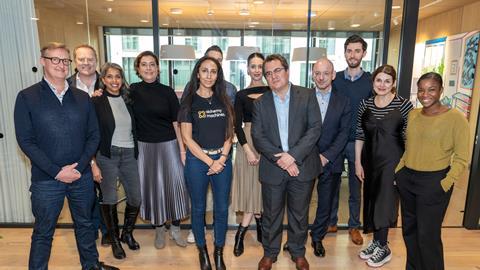








No comments yet